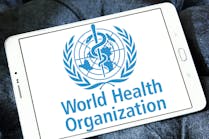U.S. Surgeon General issues advisory on youth mental health crisis further exposed by COVID-19 pandemic
The U.S. Surgeon General Dr. Vivek Murthy issued a new Surgeon General’s Advisory to highlight the urgent need to address the nation’s youth mental health crisis.
As the nation continues the work to protect the health and safety of America’s youth during this pandemic with the pediatric vaccine push amid concerns of the emerging omicron variant, the U.S. Surgeon General’s Advisory on Protecting Youth Mental Health outlines the pandemic’s unprecedented impacts on the mental health of America’s youth and families, as well as the mental health challenges that existed long before the pandemic.
The Surgeon General’s advisory calls for a swift and coordinated response to this crisis as the nation continues to battle the COVID-19 pandemic. It provides recommendations that individuals, families, community organizations, technology companies, governments, and others can take to improve the mental health of children, adolescents and young adults.
Before the COVID-19 pandemic, mental health challenges were the leading cause of disability and poor life outcomes in young people, with up to 1 in 5 children ages 3 to 17 in the U.S. having a mental, emotional, developmental, or behavioral disorder.
Additionally, from 2009 to 2019, the share of high school students who reported persistent feelings of sadness or hopelessness increased by 40%, to more than 1 in 3 students. Suicidal behaviors among high school students also increased during the decade preceding COVID, with 19% seriously considering attempting suicide, a 36% increase from 2009 to 2019, and about 16% having made a suicide plan in the prior year, a 44% increase from 2009 to 2019. Between 2007 and 2018, suicide rates among youth ages 10-24 in the U.S. increased by 57%, and early estimates show more than 6,600 suicide deaths among this age group in 2020.
The pandemic added to the pre-existing challenges that America’s youth faced. It disrupted the lives of children and adolescents, such as in-person schooling, in-person social opportunities with peers and mentors, access to health care and social services, food, housing, and the health of their caregivers. The pandemic’s negative impacts most heavily affected those who were vulnerable to begin with, such as youth with disabilities, racial and ethnic minorities, LGBTQ+ youth, low-income youth, youth in rural areas, youth in immigrant households, youth involved with the child welfare or juvenile justice systems, and homeless youth.
This Fall, a coalition of the nation’s leading experts in pediatric health declared a national emergency in child and adolescent mental health.
The Surgeon General’s Advisory on Protecting Youth Mental Health outlines a series of recommendations to improve youth mental health across eleven sectors, including young people and their families, educators and schools, and media and technology companies. Recommendations include:
- Recognize that mental health is an essential part of overall health.
- Empower youth and their families to recognize, manage, and learn from difficult emotions.
- Ensure that every child has access to high-quality, affordable, and culturally competent mental health care.
- Support the mental health of children and youth in educational, community, and childcare settings. And expand and support the early childhood and education workforce.
- Address the economic and social barriers that contribute to poor mental health for young people, families, and caregivers.
- Increase timely data collection and research to identify and respond to youth mental health needs more rapidly. This includes more research on the relationship between technology and youth mental health, and technology companies should be more transparent with data and algorithmic processes to enable this research.





